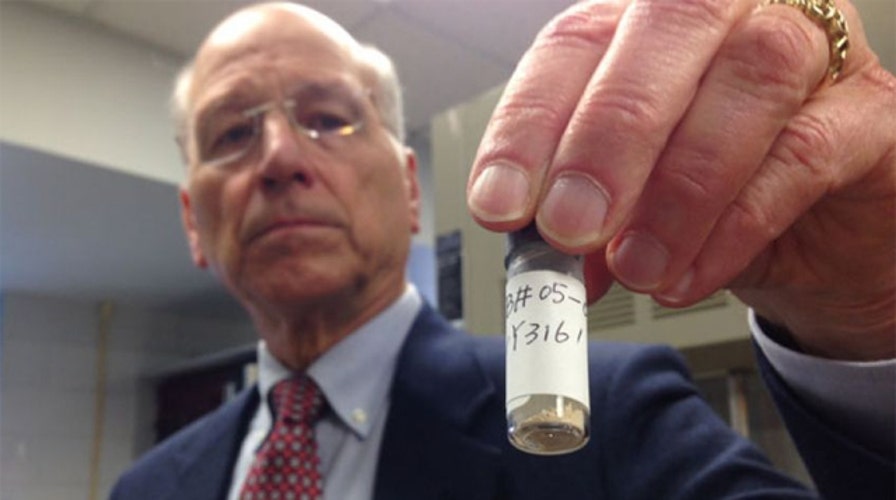The Ebola virus is able to turn off the body’s natural immune response. But researchers at Auburn University believe they’ve developed an “on-switch.”
Simply known by its lab identification number, WY3161 is a relatively small molecule. The compound appears to reverse the immune-blocking effects of certain viruses, including Ebola, when tested on cells from green monkeys.
“In the future, what we learn from how viruses turn off the immune system is going to open up these other 10 or 12 categories of viruses,” said Stewart Schneller, the Auburn chemistry professor leading the study. “There may be leads there.”
The Auburn team is working in conjunction with the National Institutes of Health (NIH) and plans to publish details of its findings later this month in the journal Bioorganic & Medicinal Chemistry.
Because WY3161 is in a relatively early phase of testing and development, Schneller said it will not be ready for use on current Ebola patients. However, the compound is among a series of potential treatments for future outbreaks.
One of those potential treatments already making headlines is ZMapp, an experimental drug made by Mapp Biopharmaceutical Inc. of San Diego, California. The serum is made using three different purified antibodies.
“We call them monoclonal antibodies and they work in three different ways,” Erica Ollmann Saphire of the Scripps Research Institute explained in an interview with Fox News’ Greta Van Susteren. “One binds to the top of the virus. It alerts the immune system to the presence of the foreign invaders so that the virus or infected cell can be destroyed. Two others bind to a different part of the viral surface molecule and… neutralize the virus. They block the infection.”
Two American missionaries infected with Ebola received doses of ZMapp before leaving Africa for treatment in the U.S.. Dr. Kent Brantly and nurse Nancy Writebol are in an isolation unit at Emory University Hospital in Atlanta.
Their conditions are said to be improving. Although medical experts caution it’s too early to know whether the experimental ZMapp treatment is playing a role in their apparent recovery.

